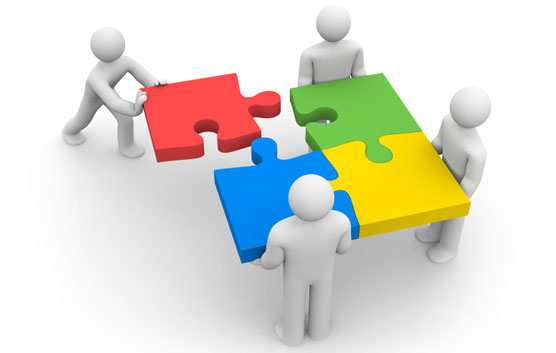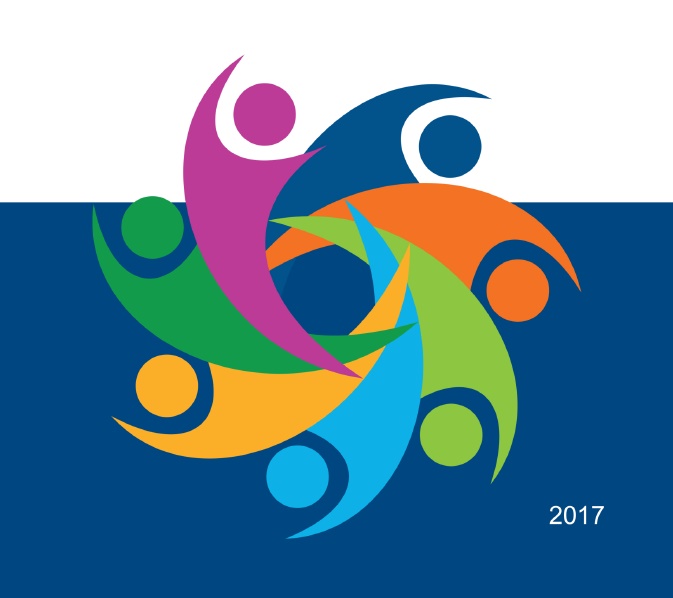The Italian Website on Integration ("Portale Integrazione migranti") has been developed by the Ministry of Labour and Social Policies with the collaboration of the Ministry of the Interior and the Ministry of Education.
The Web Portal, online since 2012, represents a tool aimed at promoting integration of migrants through information; it is addressed to institutions responsible for migration and integration, as well as operators dealing with migrants. The main objective is to disseminate information on integration services for migrants throughout the national territory.
The website includes, first of all, information on the policies and projects carried out by the Ministry in the field of migrations and integrations, with the aim to collect, in a sole national point of access, all relevant data.
The Portal is organized in different sections in which information concerning integration is available: housing, access to the labour market, Italian language, welfare system, education, intercultural mediators, health. Such sections correspond to the main areas of the integration process, and also represent the articulation of the database of services present on the website. Such database collects about 16.000 geo-referenced services, with the aim to simplify the search for resources and opportunities on the territories. The services are offered by the entities enrolled in the National Register of associations working in favour or migrants, held by this Ministry.
 THEMATIC AREAS THEMATIC AREAS
|
Website contents are further structured into 4 thematic areas: International protection, Culture, Migrant associations, and New generations.
"International Protection" is a section realized in collaboration with the United Nations High Commissioner for Refugees (UNHCR). It is meant to be an informative and guiding tool for operators working in the sector as well as for asylum seekers and beneficiaries of international protection. This section collects all the relevant information about legislation at international, European and national level, research reports, initiatives of the European Union, data,romising practices realized at local level, targeted services available in the field of international protection.
This section also offers users information about scholarships offered by Universities for refugees, covering expenditures for their stay, university fees and language courses. More specifically, a mapping of scholarships was realized in collaboration of UNHCR, to enable users to find all the details concerning the Universities, applications, deadlines, contacts, websites and link to apply.
MIGRANTS ASSOCIATIONS AREA
"Migrants Associations" is an area devoted to the associations of migrant citizens present in Italy. The aim of the area is to deepen the knowledge of the associations of migrants, enhance their activities and build a community owing to a communication and exchange channel among associations and between the latter and the Website.
The Migrants Associations area was created on the occasion of the 16 meetings held in Italy in 2014 among the Ministry of Labour and Social Policies, the migrants' communities and the migrants' associations. Within this initiative, the Ministry of Labour and Social Policies financed the realization of an intervention aimed at strengthening the involvement of migrants associations. Therefore, in the view of empowerment, the project promoted the active participation of migrants and their associations on one hand and, on the other hand, it qualified the presence of these associations within the Portal. A systematic mapping of the associations of foreign citizens present in Italy was built (and constantly updated) in order to acquire and share detailed information concerning the presence, typology, composition and fields of activity of the associations of foreign citizens. At present time, 1.413 migrant associations are present in the database.
CULTURE AREA
The section "Culture" offers the opportunity to mainstream "migrant cultural production" by dissemination information on cultural events, insights, news. The main goal is to show the positive impact of migrants in the Italian society in terms of exchange, enrichment and integration. A special focus is dedicated to beneficiaries of international protection by unveiling cultural experiences and initiatives undertaken at territorial level to promote their integration (e.g. theatrical spectacles with refugees).
NEW GENERATION
New Generations is an area especially focused on young people coming from a migratory context
The area was created owing to the project "Filo diretto con le Seconde Generazioni" (Direct Line with Second Generations), promoted by the Migrants Integration Portal, with the aim to deepen the knowledge of the second generations' associations and to collect their requests.
The subjects participating in the initiative have been invited to work together in order to create a common document collecting the needs and proposals of the second generations as regards the institutions' activities.
Through some meetings the associations had the opportunity to share their analyses and experiences and co-plan a Manifesto (2014), that provided many practical proposals addressed to all stakeholders.
In 2016, over 20 associations of the 'Filo diretto' network decided to start a new operational phase launching the creation of a national coordination (CoNNGI) with the aim to represent the associations of youth with a migratory background in an organized manner, both at national and international level.
In 2016 CoNNGI pubblished an updated version of the 2014 Manifesto, reasserting the scopes of action deemed important from the very outset: school, work, culture, sport, participation. Among the novelties of the 2016 Manifesto, its title 'Manifesto delle Nuove Generazioni Italiane' (Manifesto of the New Italian Generations), a more inclusive definition considering the complex reality represented, as well as the introduction of the issue on citizenship and political representation.
A new update of the Manifesto of the New Italian Generations was presented in 2019
 RESEARCH REPORTS ON MIGRATION AND INTEGRATION RESEARCH REPORTS ON MIGRATION AND INTEGRATION
|
The Directorate-General for immigration and integration policies funds and publishes, every year, a series of Reports centered on different issues related to migration and integration. The importance of such research is related to the fact that effective policies in this field can be carried out only on the base of a deep and accurate knowledge of phenomena. All the reports are available in the Portal.
The Annual Report "Migrants in the Italian Labour Market" is by now a consolidated tool of collection, analysis and dissemination of data relating to foreign presences in Italy and to the importance that EU citizens and especially non-EU nationals have in the Italian employment system. The Report represents a fruitful and significant form of institutional cooperation between the Directorate General of Immigration and Integration Policies, the Directorate General of Information Systems, Technological Innovation, Data Monitoring and Communication of the Ministry of Labour and Social Policies, INPS, lNAIL, Unioncamere and Anpal Servizi SpA.
The 8th Annual Report edition, presented in July 2018, analyses the reconstruction of the demographic and employment dynamics, labour demand for employees and semi-subordinate workers, pension positions and the passive and welfare policies addressed to foreign workers. Compared to previous editions, some insights have been introduced dedicated to the issues of educational mismatches, the relationship between families and the labour market, and companies that have taken on foreign workers; finally, an experimental section has been dedicated to geo-localization on a municipal and sub-municipal scale of recruitment, divided by nationality.
A summary of the 9th Annual Report, presented in July 2019, is avaiable in English.
The Annual Reports "The migrant communities in Italy" focus on an important and specific feature of the Italian migration scenario, that is, the presence of many migrant communities with different linguistic and cultural backgrounds. Each Report analyzes the characteristics of one of the main migrant communities present on the Italian territory (Moroccans, Albanians, Chinese, Ukrainians, Indians, Filipinos, Egyptians, Bangladeshis, Moldavians, Pakistanis, Tunisians, Sri Lankans, Senegalese, Peruvians, Ecuadorians, and, as from 2018, Nigerians).
The Reports analyzes the social and demographic features of each migrant community, the presence of minors, as well as the different dimensions of integration paths: e.g., the labor market integration, the access to welfare system and to citizenship, the forms of participation (e.g., through social partners), the financial inclusion.
The Annual Reports "The presence of migrants in metropolitan areas" take into account the geographic dimension; it is well known, indeed, that the Italian scenario is characterized by significant differences in terms of territories and population density. The main aim of such Reports is to analyze the dimensions of social and labour inclusion of Non-EU citizens in the metropolitan cities of Bari, Bologna, Cagliari, Catania, Firenze, Genova, Messina, Milano, Napoli, Palermo, Reggio Calabria, Roma Capitale, Torino, Venezia.
A summary of the 3th edition, presented in May 2019, is avaiable in English.
Last but not least, the presence of Unaccompanied Minors in our country is analyzed through two different series of Reports, that include data collected by the Directorate-General for immigration and integration policies:
- The monthly statistical reports, that include data on presence, gender, ranges of age, countries of origin, Regions in which unaccompanied minors are accommodated;
- The half-yearly monitoring reports, that analyze the main features of unaccompanied minors present in Italy, with a focus on qualitative and quantitative trends.